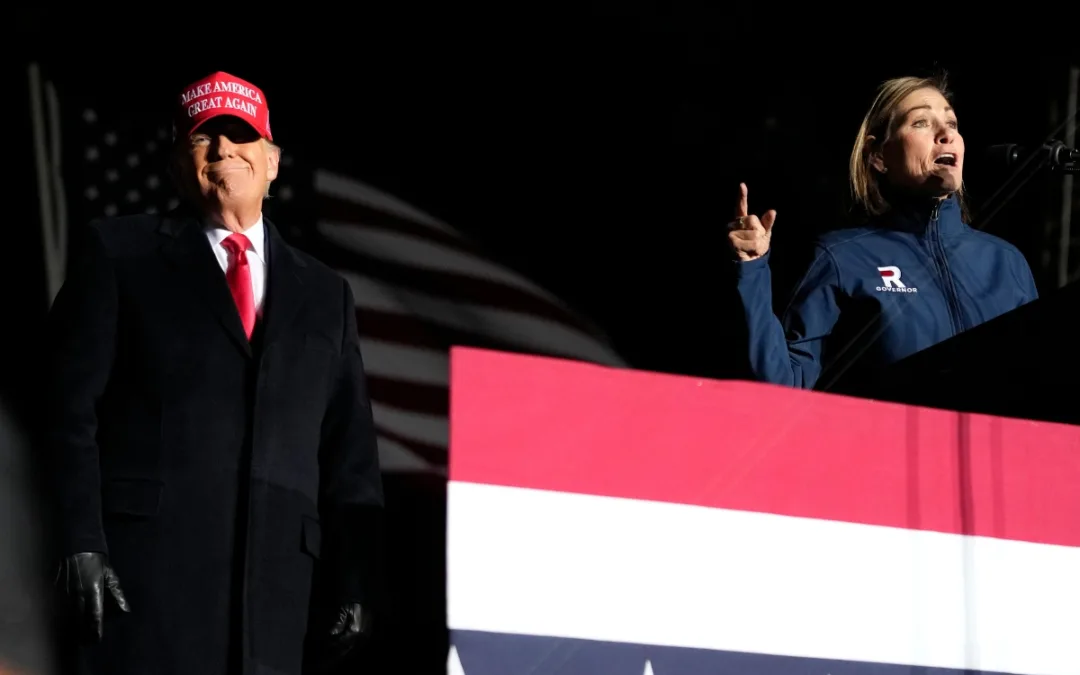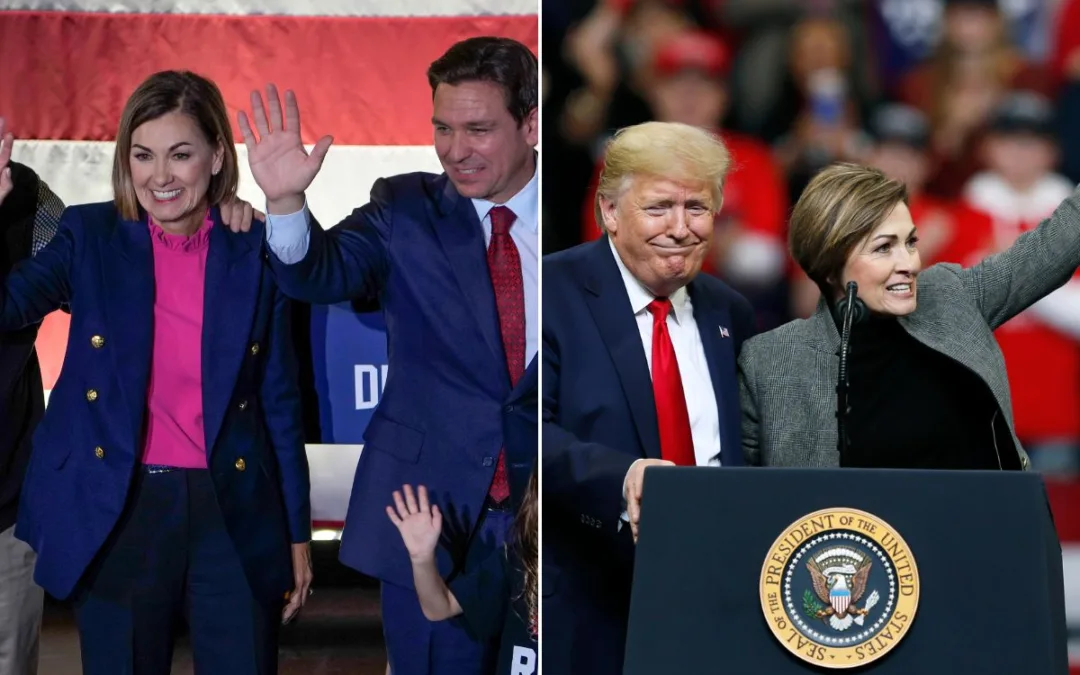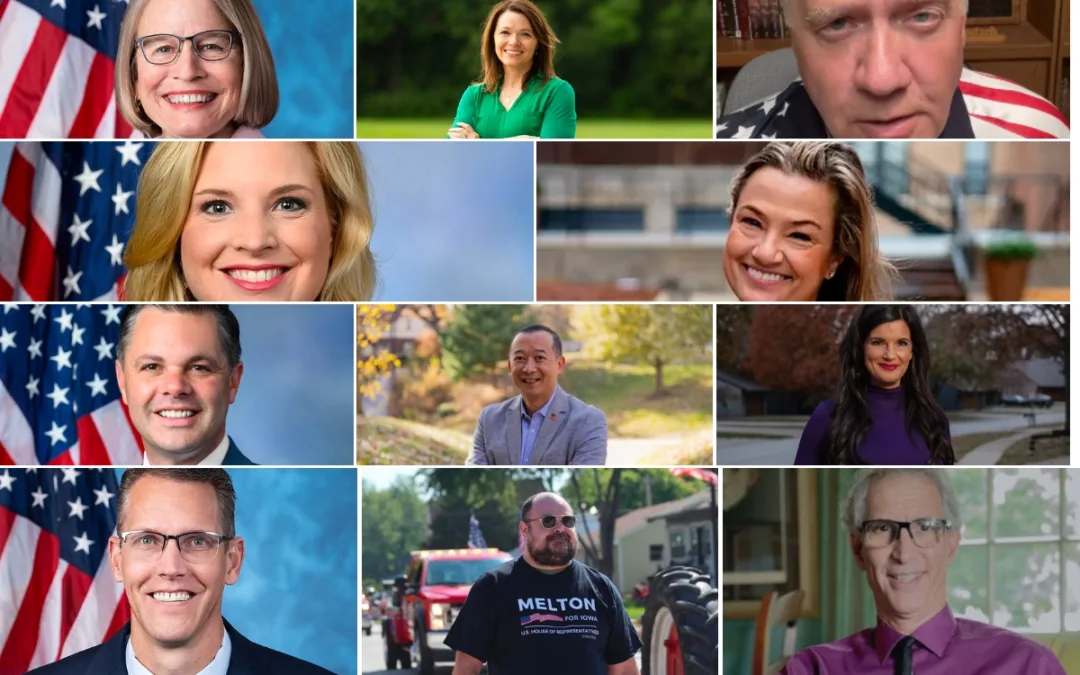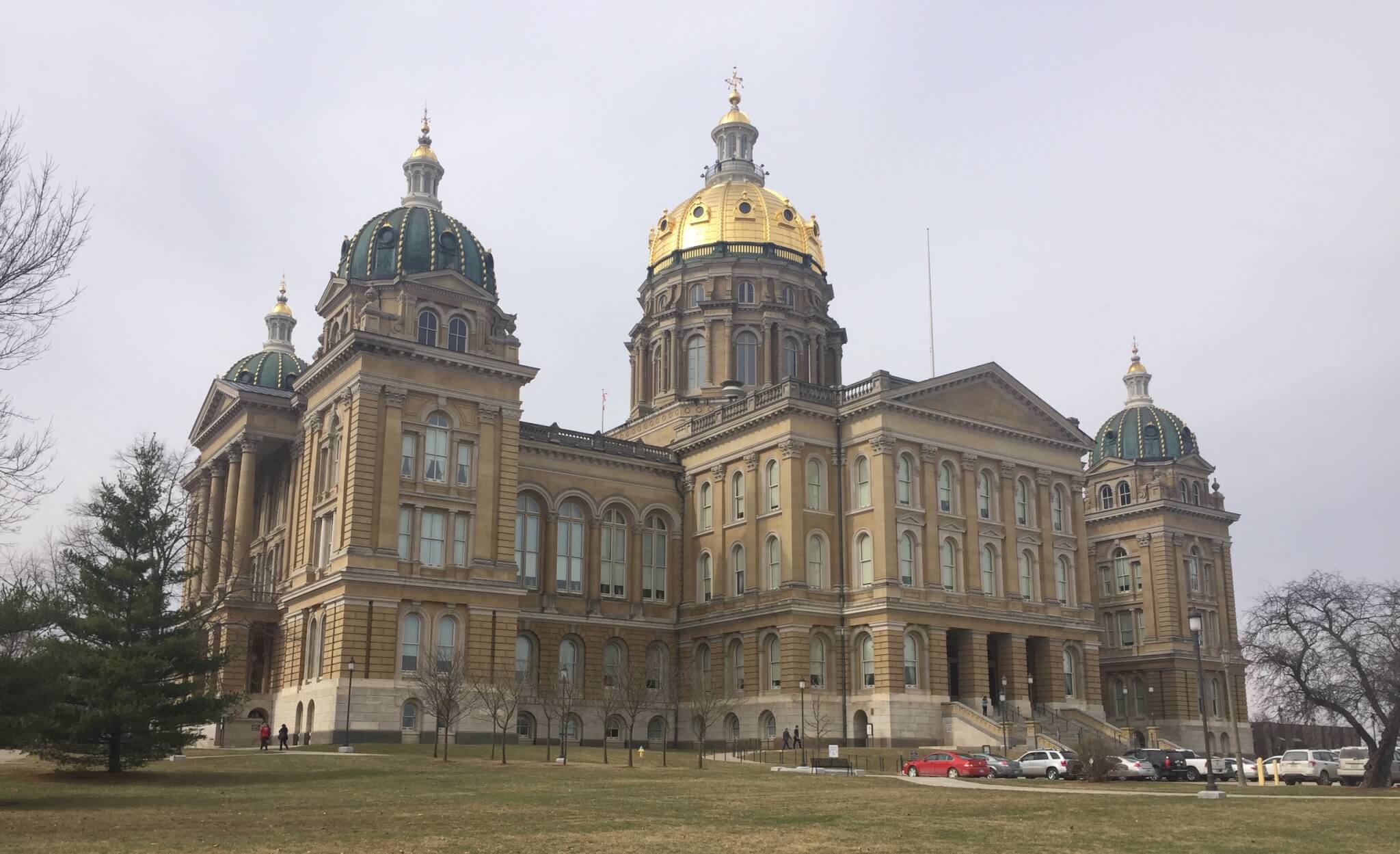
School has been back in session across Iowa for college and high school students for a few weeks now. While Donald Trump is certainly a constant topic of discussion, important Iowa campaigns are well underway for governor, Congress, the Iowa Legislature and other statewide offices. Starting Line thought it’d be helpful to put together a simple primer guide all in one place for those races and the overall dynamics of Iowa politics to help students who want to get a good baseline knowledge of what’s happening.
Many politically-engaged students will already know this information. But perhaps they have out-of-state friends who are attending an Iowa college or are just starting to get interested in politics. Pass this story along to them to bring them up to speed.
Iowa Post-Trump: Red State Or Still Purple?
The big question for Iowa politics in 2018 is whether Donald Trump’s big win in Iowa was a one-off event or a solidification of Republican control. For decades Iowa was considered a purple swing state at the presidential level. Al Gore carried Iowa in 2000 and George W. Bush took it in 2004. Barack Obama won it by nine points in 2008 and by six points in 2012. But then Donald Trump won by nearly ten points in 2016, one of the largest swings in the country from the Democratic nominee to the Republican.
Iowa was already trending toward Republicans at the non-presidential level. Republicans took control of the governor’s office and Iowa House in 2010, and won full control of the Statehouse in 2016 by picking up the majority in the Iowa Senate. Democrats went from controlling four of seven federal offices in 2007 to just one of six after the 2014 races during which Joni Ernst got elected to the U.S. Senate.
But Democrats have hope that they can turn it around in 2018 and regain control of at least one part of Iowa government. Their victory in an Iowa House special election in August in a district that Trump carried by 21 points demonstrated they weren’t out of the game yet.
Iowa Governor
The big prize in 2018 is the governor’s race. Republican majorities in the Iowa House and Iowa Senate may be too large to overcome in one cycle, so this could be Democrats’ best chance to bring some balance back to state government. Tens of millions of dollars will likely be spent on the campaigns.
Republican Governor Terry Branstad, the longest-serving governor in American history, was appointed to be the ambassador to China by President Trump earlier this year. Lt. Governor Kim Reynolds took over the job in May. She’s running in 2018 as sort of a quasi-incumbent; she’ll have served a year and a half in the office, but hasn’t been elected governor on her own yet. Because of that the Republican Party of Iowa is technically neutral in the GOP primary, although the vast majority of the party’s establishment, donors and activists are lined up behind Reynolds.
A large primary field has developed for the Democrats with seven candidates currently in the race. Several previous contenders already passed on a bid or dropped out citing fundraising issues (there’s simply not enough donors to go around for so many candidates). With no major statewide elected official like former Governor Tom Vilsack or Tom Harkin, there’s no clear leader of the state party.
The primary date for both parties is on June 5, 2018.
Republican Gubernatorial Candidates
Kim Reynolds: Former Clarke County Treasurer, former state senator, she served as Branstad’s lt. governor since 2011, now running for a full term on their economic record. Adam Gregg is her “acting” lt. governor.
Ron Corbett: Two-term mayor of Cedar Rapids, former Speaker of the Iowa House. He faces an uphill battle to unseat a sitting governor in a primary, but he’s well-funded and can run a full operation.
Steven Ray: Boone City Council member. Running as an anti-establishment, pro-labor Republican.
Democratic Gubernatorial Candidates
Nate Boulton: Des Moines state senator and labor rights attorney, came to prominence by leading Democratic resistance to collective bargaining changes.
Cathy Glasson: Nurse and president of Iowa’s SEIU labor union (healthcare workers), from Coralville, pitching “bold progressive” candidacy on minimum wage and healthcare.
Fred Hubbell: Former business leader, a philanthropist and major Planned Parenthood supporter, he has a well-known name in the Des Moines area and is highlighting his executive experience.
Andy McGuire: Doctor, former healthcare executive, former chair of the Iowa Democratic Party. Running on knowledge of healthcare policy. Mother of seven.
Jonathan Neiderbach: Former president of the Des Moines School Board, Democrats’ State Auditor candidate in 2014, running as an outsider backing left-leaning policies.
John Norris: Former chief of staff to Governor Tom Vilsack, past Iowa Democratic Party chair, worked at USDA. Pitching better Democratic outreach to rural communities.
Ross Wilburn: Former mayor of Iowa City, current diversity outreach official at ISU. Running on a vision of a more inclusive and welcoming Iowa.
Libertarian and Independent Gubernatorial Candidates
Jake Porter: The libertarian candidate for governor, a Council Bluffs business consultant. Wants to make medical cannabis available, phase out sales tax.
Brent Roske: An independent candidate for governor. A California filmmaker who’s lived in Iowa since the 2016 Iowa Caucus covering politics. Running on progressive policies.
Iowa Statehouse
Republicans hold a 59 to 41 majority in the Iowa House and a 29 to 20 majority in the Iowa Senate. The Senate has one independent senator. Only half of the Senate seats are up each cycle. All 100 House seats are on the ballot.
Republicans won full control of the Legislature in 2016, leading to a sharp rightward shift in legislation this past year. The all-GOP government defunded Planned Parenthood, curtailed public workers’ collective bargaining rights, implemented a voter ID law and slashed spending for social programs. They’re expected to look at school vouchers next session.
Iowa has nonpartisan redistricting, meaning that legislative districts aren’t gerrymandered/drawn in a way to protect incumbents or the ruling party. There are usually dozens of competitive races every cycle, meaning a party that recruits good candidates, runs solid races and gets some luck from the national mood can pick up many seats in any given year.
Other Statewide Offices
All of Iowa’s statewide offices are up for election in 2018. The two longtime Democratic incumbents, Attorney General Tom Miller and Treasurer Mike Fitzgerald, usually easily win reelection even when they get strong Republican opponents. Republican State Auditor Mary Moisman will likely face Democrat Rob Sand, an assistant attorney general. Republican Secretary of State Paul Pate currently has two Democrats competing in a primary to take him on: veteran Jim Mowrer and small businesswoman Deidre DeJear.
Secretary of Agriculture Bill Northey was just appointed to a position in the Trump Administration, but the process could take a long time. It’s not clear yet who will be appointed by Governor Reynolds to replace him or who the Democrats will run for that office.
Congressional Districts
Republicans hold three of Iowa’s four congressional districts. The 1st, 2nd and 3rd Districts are usually competitive. Steve King regularly wins by wide margins in Western Iowa’s 4th District. Rod Blum in the 1st District is typically seen as the most at-risk. We’re listing the candidates for each district who are at least halfway serious.
1st District (Cedar Rapids, Waterloo, Northeast Iowa)
Congressman Rod Blum: Businessman from Dubuque, two-term incumbent, member of the conservative House Freedom Caucus.
Democratic Candidates
Abby Finkenauer: Two-term Iowa House member from Dubuque, grew up in a labor family, pushing working class priorities.
Thomas Heckroth: Former staffer for Tom Harkin, grew up in Waverly, sixth-generation Iowan, son of a former state senator.
George Ramsey III: Spent 31 years in the military, lives in Cedar Rapids, running on leadership experience.
Courtney Rowe: Cedar Rapids aerospace engineer, served in the Air Force Reserves, pushing single-payer healthcare plan.
2nd District (Iowa City, Davenport, Southeast Iowa)
Congressman Dave Loebsack: Six-term incumbent, won in an upset in 2006. Former college professor from Iowa City, stresses blue collar background and issues.
Republican Candidates
Christopher Peters: Doctor from Coralville, veteran, former libertarian, ran against Loebsack in 2016 as well.
3rd District (Des Moines, Council Bluffs, Southwest Iowa)
Congressman David Young: Former Chuck Grassley staffer, two-term incumbent from Van Meter. Travels his district extensively every year.
Democratic Candidates
Cindy Axne: Small business owner, community activist on education issues, worked on environmental issues in Vilsack and Culver administrations, from West Des Moines.
Pete D’Alessandro: Top Bernie Sanders adviser for the Iowa Caucus, worked in former Governor Chet Culver’s administration, lives in Des Moines.
Austin Frerick: Worked for the U.S. Treasury, lives in Madison County, critical of big corporate agriculture practices.
Theresa Greenfield: Real estate executive, former urban planner, grew up on a family farm. Lives in Des Moines.
Eddie Mauro: Small business owner, baseball coach, from well-known family on Des Moines’ South Side.
4th District (Ames, Mason City, Northwest Iowa)
Congressman Steve King: In office since 2002, an often controversial elected official on topics of immigration.
Democratic Candidates
Leann Jacobsen: Small businesswoman in Spencer, serves on the Spencer City Council, past president of Technology Association of Iowa.
J.D. Scholten: Former baseball player, paralegal, 5th generation Iowan. Grew up in Sioux City.
The Iowa Caucus
Iowa is nationally known for its role as the first state in the presidential primary calendar. Democrats considering a run for the White House in 2020 are already starting to visit Iowa and meet with activists.
But caucuses are also held in non-presidential years. They could be particularly important for 2018 since there are so many Democratic candidates in several primaries. In Iowa if no candidate gets 35% in a primary, the party’s convention chooses the nominee instead. The first step in the process to determine who the delegates are at those conventions starts on February 5, 2018 at the precinct caucus level.
For more information on any of these candidates, use the search bar on Starting Line’s website for our earlier stories on them. And like Starting Line on Facebook and follow us on Twitter to keep up to date on Iowa political news.
by Pat Rynard
Posted 9/12/17
Politics
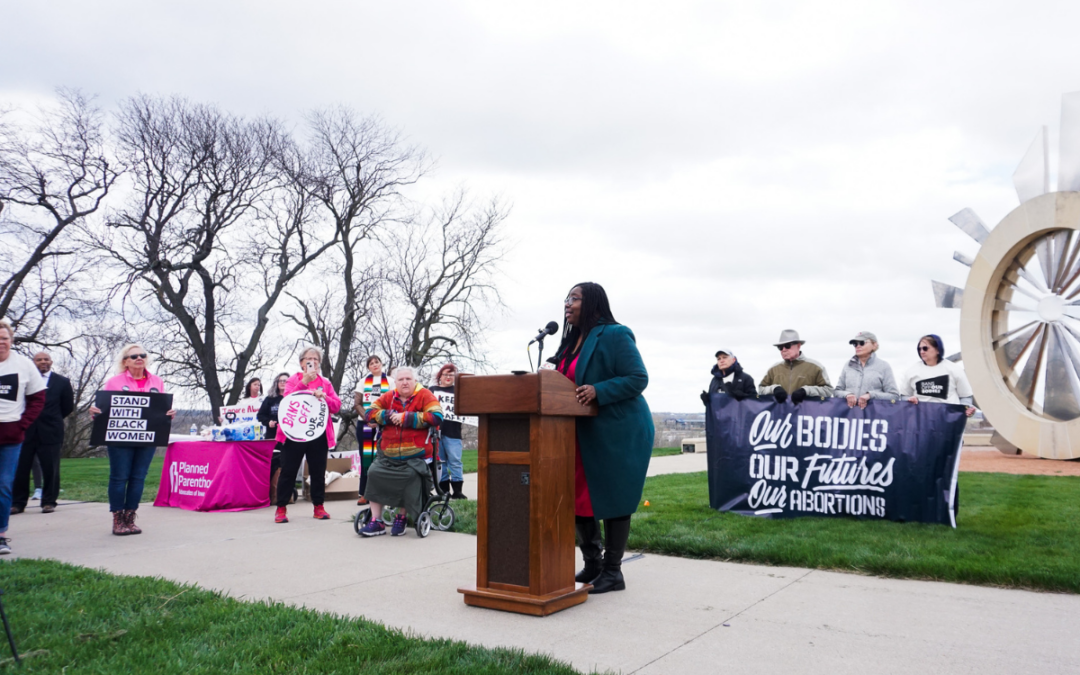
Abortion supporters rally before Iowa Supreme Court arguments
Abortion saved her life seven years ago and Leah Vanden Bosch is more grateful for it now than ever. Vanden Bosch, who serves as the development and...
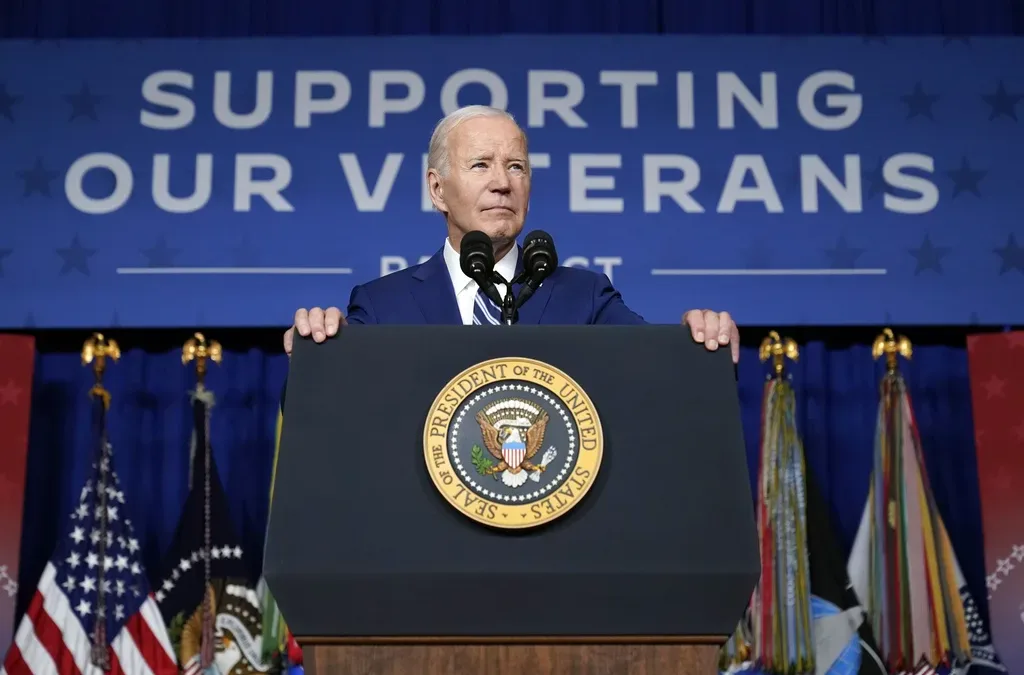
New VA program to help more than 40,000 veterans stay in their homes
The Department of Veterans Affairs (VA) will launch a “last resort” program for tens of thousands of American veterans who are in danger of losing...
Local News

No more Kum & Go? New owner Maverik of Utah retiring famous brand
Will Kum & Go have come and gone by next year? One new report claims that's the plan by the store's new owners. The Iowa-based convenience store...

Here’s a recap of the biggest headlines Iowa celebs made In 2023
For these famous Iowans, 2023 was a year of controversy, career highlights, and full-circle moments. Here’s how 2023 went for the following Iowans:...



